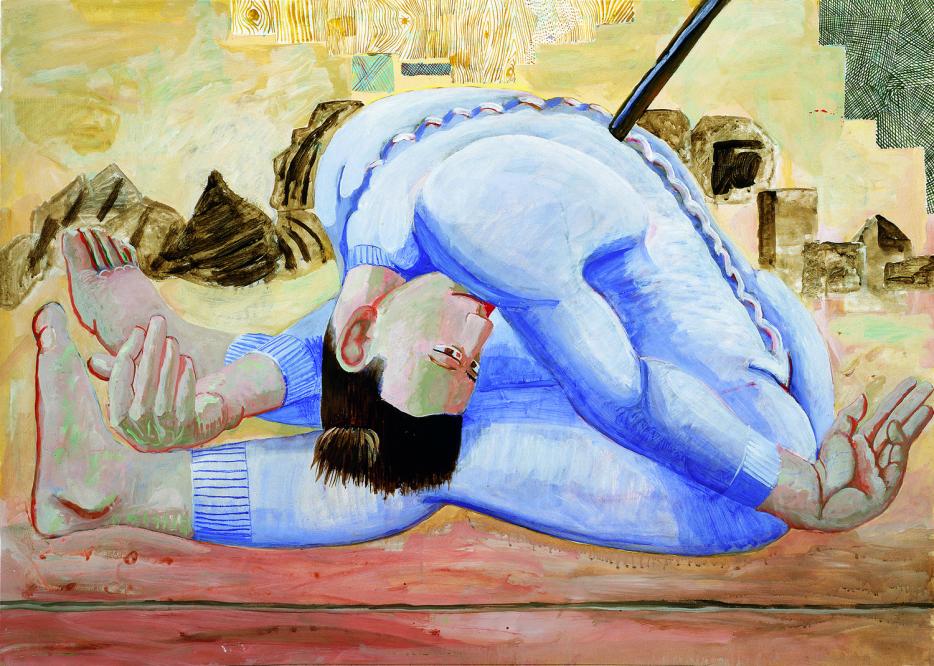Homer to Hedges. There are so many books on war that any selection must be idiosyncratic, almost random. After all, what list doesn’t include something by Kapuscinski, Herr or Greene? This one.
1. Homer’s Iliad
One of the stranger legacies of Osama bin Laden is the recent fashion in ancient Greek literature. In the last decade it’s as if we’ve been invaded by the Achaeans—novels based on epics and plays, as well as theatrical revivals are all the rage. But it’s not surprising. Our reaction to 9/11 was so bizarre and moronic that it would have been tragically familiar to the Greeks and their guidance is required. Thanks to these ancients, the highbrow attempts to think through recent wars have often been more successful than the pop culture ones. The Greeks understood war, at least in its poetic form, because they grew up on The Iliad.
2. Seven Pillars of Wisdom, T.E. Lawrence
Post 9/11, there is a mini-industry of books on counter-insurgency for obvious reasons. But before there was The U.S. Army/Marine Corps Counterinsurgency Manual (aka FM 3-24), there was Lawrence’s Seven Pillars of Wisdom, or the abridged Revolt in The Desert. George W. Bush et al should have picked up one of them a decade ago. As the Marines discovered in Fallujah, even a lightly armed tribal militia can be a real headache. Had they read Lawrence, the Americans might have not have waited so long to buy off the Duleimi and other tribes who were always more interested in getting money from the Americans than fighting them.
3. Black Lamb and Grey Falcon, Rebecca West
This is not a history of a war. It’s much more important. It’s a warning about a war to come, the looming calamity of the Second World War, and an examination of humanity’s propensity for self-destruction. Some journalists tried to use West as a guide to the later Balkan conflicts but that rarely worked. She was a great psychologist rather than an historian and when the facts didn’t fit her insight, she wisely chose theory. You can’t do that nowadays, which is why it’s worth reading this door-stopper.
4. And No Birds Sang, Farley Mowat
He probably is Canada’s best storyteller and this is the story of how his heart got broken by modernity on the battlefields of Europe during WWII. He’s been defending the garden against that evil since then.
5. A Clean Young Englishman, John Gale
A book about madness and war rather than just the madness of war. Gale’s mental collapse as he works as a foreign correspondent is incomparable. I lost my copy years ago but have never forgotten the scene in Algeria when Gale asks a French policeman whether that is blood on the ground after a bombing. “It’s not red wine, monsieur,” comes the Gallic cool answer. Would someone please bring it out again or make it available as an e-book?
6. The Hidden War, Artyom Borovik
I found a second hand copy of The Hidden War, a Russian journalist’s account of the earlier Soviet blunder, in Islamabad on my way to interview the renowned Mujahideen leader Ahmed Shah Massoud who was still hanging on against the Taliban in a small corner of northern Afghanistan. Six months later, Bin laden bombed New York and killed Massoud. It would be hard to find a better introduction to what was coming up —as if Dostoyevsky went to war under the Soviets.
7. My War Gone By, Anthony Lloyd
The Balkans give good war literature and it is hard to choose among them. But for my generation, Lloyd’s book made the Balkan years of violence almost too appealing, a sentimental favourite in every sense.
8. Unembedded, Ghaith Abdul-Ahad, Kael Alford, Thorne Anderson, Rita Lesitner
Some of the best books on war come from photographers. This collection of images of the American occupation captures the confusion, heat and charnel house that Iraq became. Unlike the Vietnam War, squeamishness and self-censorship meant that few of these photographs ever made our front pages.
9. De Niro’s Game, Rawi Hage
With what is going on in Syria, it is a good time to read this novel about the Lebanese civil war. Hage captures the poetry, humour, friendship, identity and violence that make this part of the world so compelling, intense and problematic.
10. War is a Force That Gives us Meaning, Chris Hedges
A great sermonizer, Hegdes examines our need for the myth of war and the wars we seem to start in order to satisfy that weird compulsion. It is also about the burden of a vocation for truth that ultimately can never be satisfied without getting killed, about flying too close to that truth and dropping hard. Hedges managed to live, unlike his friend Kurt Schork, and appears to be sober, almost too sober. Many don’t or aren’t.






